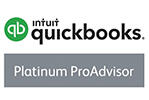Tax day announcements hint at system overhaul
On 23 March 2021, dubbed “tax day”, the government published a number of policies that seem to suggest the UK tax system will be subject to major reform in the coming years. What were the key announcements?

Tax day was the day the government published a document containing 30 announcements relating to tax policy. Much of this is high level, for example the announcement relating to promoters of tax avoidance. However, some of the content suggests that the UK tax framework will be revised over the coming years. Of particular interest is the intention to move the payment dates for income tax and corporation tax for small companies closer to the point that the underlying income is received, i.e. more akin to real-time payment. This will undoubtedly go hand in hand with the Making Tax Digital initiative.
Another welcome point is the commitment to reducing red tape associated with inheritance tax reporting. From 1 January 2022, the publication says that “over 90% of non-taxpaying estates each year will no longer have to complete inheritance tax forms for deaths when probate or confirmation is required. In addition, the current temporary provision for those dealing with a trust or estate to provide an inheritance tax return without requiring physical signatures from all those involved will be made permanent.” There is no detail on exactly how this will be achieved, but it appears the government will implement some changes recommended by the Office of Tax Simplification in 2018.
Related Topics
-
CT61
-
Repayment thresholds for student finance confirmed
Repaying student finance can seem complicated, with a number of different plan types each having different repayment thresholds. The thresholds for the forthcoming year have just been confirmed. What’s the full story?
-
Advance assurance pilot confirmed
There have been a number of changes to how research and development tax credits are claimed in recent years. HMRC has now confirmed that a pilot of a new clearance procedure will begin later this year. What do we know so far?



 This website uses both its own and third-party cookies to analyze our services and navigation on our website in order to improve its contents (analytical purposes: measure visits and sources of web traffic). The legal basis is the consent of the user, except in the case of basic cookies, which are essential to navigate this website.
This website uses both its own and third-party cookies to analyze our services and navigation on our website in order to improve its contents (analytical purposes: measure visits and sources of web traffic). The legal basis is the consent of the user, except in the case of basic cookies, which are essential to navigate this website.